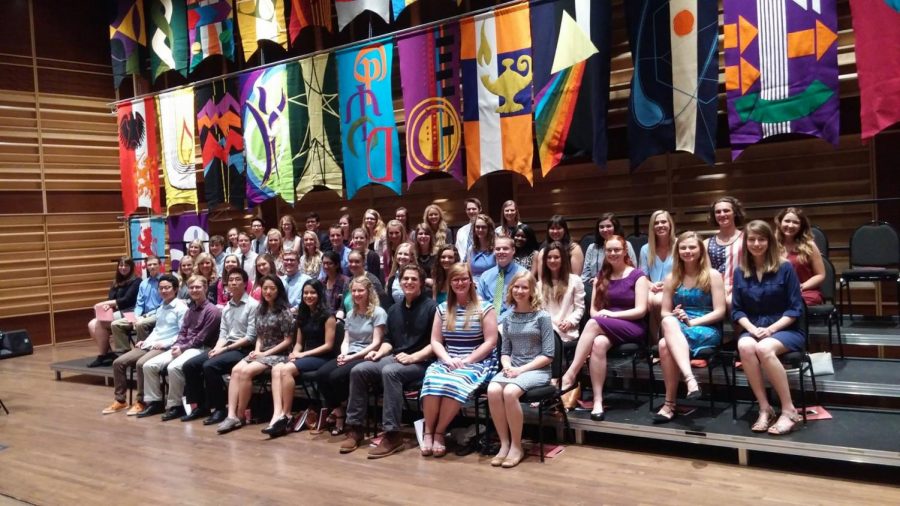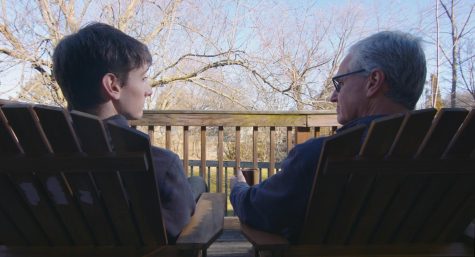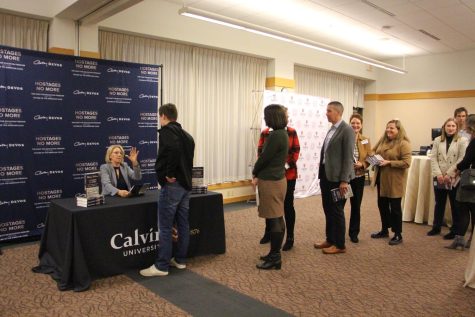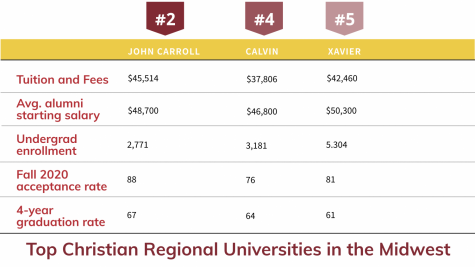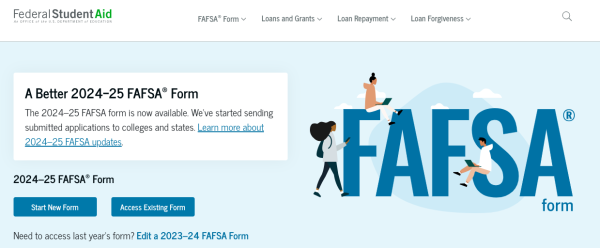Honors program considers cohort model
Students who graduate with honors are recognized at Honors Convocation each spring. Photo courtesy Calvin College Honors.
Calvin College has had an active honors program for the past 40 years. Recently, various groups of faculty members and honors students have met to discuss how the current honors program can be reshaped to reduce and/or eliminate shortcomings as well as become more competitive with other honors programs and foster a greater sense of community among Calvin Honors students.
The current honors program has over 600 students participate in the program in some way. Many students are eligible to participate and apply to take honors courses such as incoming first-year students who have earned a certain standardized test score. Transfer or current Calvin students are required to have a Calvin GPA of 3.3. Students interested in honors may still apply if these criteria are not met.
Due to the large number of participants in the program, it is difficult to create a sense of community within the honors program thus prompting the alteration of the application process in regard to competitiveness of honors.
About 50% of the students who participate in the honors program graduate with honors. Within the current program, the low retention rate has stirred questions amongst faculty working in the honors program as to why this might be.
The current honors program also depends heavily upon contracts within courses — students in courses which are not designated as honors make arrangements with the professor to do additional work to receive honors credit. On average, there are about 325 honors contracts completed each year by students. However, there is a wide variation among the contracts based on the course, professor, etc.
“It is difficult to compensate honors contracts due to the variability amongst courses, and it is also extra work for the professors,” said Craig Hanson, associate director for the Calvin honors program.
The fact that honors contracts have a wide range and are not standardized and honors students are not integrated into the community are some of the main reasons meetings have occurred over the past two years to discuss how the honors program can be changed to solve these issues.
Currently, a proposal is under review by Calvin’s major committees, including the educational policy committee, the core curriculum committee and the planning and priorities committee.
In general, the honors program would like to shift toward a more competitive cohort model. With each incoming class, about 44 students would be selected to participate in the program. Due to the smaller number of participants each year, this would help establish a stronger sense of community within the honors program.
“I am excited about the cohort model of the proposed program. This will facilitate the development of a stronger honors community — something that honors students have been desiring for many years,” said Amy Wilstermann, director of the honors program.
Those who are in the program will take interdisciplinary courses, team-taught by faculty as part of the curriculum, with other honors students.
“These courses would focus more on taking honors for the college rather than taking honors for a particular major,” said Hanson.
Students who are not accepted into the program but would still like to pursue a challenging academic curriculum may classify themselves in the “with distinctions” category by applying. This category would allow students to participate in some of the honors curriculum courses and graduate with distinction on their transcript.
Students pursuing “with distinction” would still have a competitive program, allowing them to still create significant learning experiences, but the specific admissions requirements are still being worked out.
Future editions including more specific details of the restructuring of the honors program are to come as they are brought to light.
If the proposal is passed, it will then advance to faculty senate where they will discussion whether or not to pass the proposal. If faculty senate were to pass the proposal, it would run as a pilot program for three to five years. After this, the program could be implemented, tweaked or completely reworked based on its outcomes.
Depending on when the pilot program is implemented, it would affect the next incoming class for the fall of that particular year; current students could continue with the current honors program or elect to take courses within the new program.



